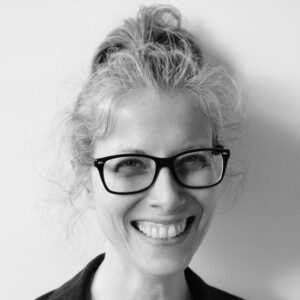 Kate Power
Kate Power
Kate is a PlanAdapt Fellow, based in Hitzacker, Germany.
She is an experienced leader in non-profit and philanthropic organisations, with a deep commitment to enabling societies that are fair, resilient and sustainable with 24 years’ work experience in the non-profit sector as a network-builder, innovator and facilitator.
Her experience includes philanthropic grant-making and programme leadership, academic research, and non-profit project management. In all her roles she has developed pioneering projects and found like-minded funding partners to co-create high ambition action for greater social impact. She has an entrepreneurial spirit when it comes to developing new concepts and getting them up and running.
Her professional skills include research, project development, fundraising, convening, and designing engaging workshops -including online events. She has built a reputation for creating motivating, energised and respectful spaces to tackle difficult issues and controversial topics such as climate justice, overconsumption and the need for caring economies.
Currently a freelance consultant, she has previously worked for inter alia Hot or Cool Institute, KR Foundation, Copenhagen Business School, Copenhagen Resource Institute and Greenpeace International.
Kate holds a Master ́s degree in Gender, Anthropology and Development from Goldsmiths, University of London.
For more info, see Kate’s LinkedIn page.
Latest publications:
Lorek, S., Iran, S., and Power, K. (2023). Caring: a solution for our societies in crisis. Hot or Cool Institute, Berlin.
Lorek, S., Power, K., and Parker, N. (2023). Economies that Dare to Care – Achieving social justice and preventing ecological breakdown by putting care at the heart of our societies. Hot or Cool Institute, Berlin.
Capstick, S., Khosla, R., Wang, S., van den Berg, N., Ivanova, D., Otto, I. M., Gore T, Corner A, Akenji L, Hoolohan C, Power K. & Whitmarsh, L. (2020). Bridging the gap–the role of equitable low-carbon lifestyles. In UNEP Emission Gap Report 2020 (pp. 62-75). UNEP.
Power, K. (2020). The COVID-19 pandemic has increased the care burden of women and families. Sustainability: Science, Practice, and Policy, 16(1), 67-73.
